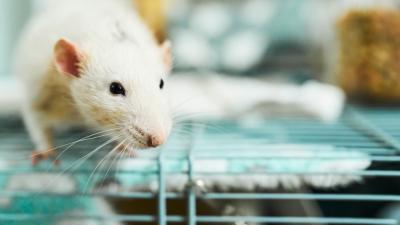Doctors Group Asks National Institutes of Health to Investigate Arizona State University for Research Misconduct

TEMPE, Ariz. — The Physicians Committee for Responsible Medicine filed a complaint with the National Institutes of Health’s Office of Laboratory Animal Welfare today, May 19, 2025, asking for an investigation of Arizona State University’s use of animals to study the effects of dietary supplements on adults with Down syndrome.
“Arizona State University cannot justify its use of mice to study a common nutrient that could be easily and ethically studied in consenting human volunteers,” the complaint says. “These uses of animals run afoul of the Public Health Service Policy that replacement of animals be considered. Using animals to research human nutrition is a step backward in terms of scientific relevance. The use of animals in this experiment demonstrates both a lack of scientific merit and research misconduct.”
A March 24, 2025, letter from the Physicians Committee brought the issue to the attention of Arizona State officials.
The study, which received financial support from the NIH, purported to investigate the effects of dietary choline supplementation on biological and cognitive outcomes in Down syndrome.
For the experiment, 67 mice were given choline over a 10-month period. The animals were then studied using often-invasive and painful procedures, including brain implants. At the study’s conclusion, all the mice were killed, and their brains and portions of their liver lobes were collected.
”This experiment should never have been approved. Choline is an essential nutrient that has already been safely studied in humans, including individuals with Down syndrome,” said Physicians Committee Science Policy Program Manager Janine McCarthy. “Arizona State University’s decision to use mice—despite the known translational failures of using animals in research—is not only scientifically unjustifiable, it disregards federal policies that promote the use of alternatives when available.”
Further, the information gathered from using mice cannot reflect the complex genetics of Down syndrome, McCarthy said.
Federal guidelines state that the “use of laboratory animals for biomedical research, testing and education is guided by the principles of the Three Rs” and explicitly endorses “consideration of alternatives … to reduce or replace the use of animals” and “use of appropriate species.” The principal investigator did not meet this requirement because there is no rationale for animal use given the abundance of clinical research examining these interventions, the Physicians Committee’s complaint says.
Decades of studies using mice have failed to yield effective treatments for people with Down syndrome. Continuing to use animals delays progress and diverts resources from research that could truly benefit this population. The Physicians Committee requests that the NIH investigate the matter and order corrective action and appropriate penalties.
Over 85% of more than 2,000 respondents polled in September 2024 in a Physicians Committee/Morning Consult survey agreed that animal-based research should be phased out in support of superior methods that do not use animals.
In contrast to animal experimentation, modern and versatile human-relevant methods, such as tissue chips, organoids, computational modeling, and high-throughput screening, have proven effective in drug development and disease modeling. They are also more representative of human beings, and of their biological variability, and more accurately model the complex, specific, genetic, and biological basis of human diseases and conditions.
Media Contact
Kim Kilbride
202-717-8665
kkilbride[at]pcrm.org
Founded in 1985, the Physicians Committee for Responsible Medicine is a nonprofit organization that promotes preventive medicine, conducts clinical research, and encourages higher standards for ethics and effectiveness in education and research.








